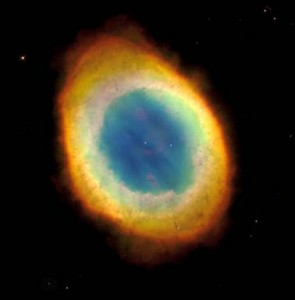Award winning teacher and professional astronomer John Percy will deliver a brief lecture at the Astronomy Club’s Family night on 1 March 2012 entitled:
How Stars Die
Abstract: Stars are distant suns. Unlike planets, they produce energy. They do this by nuclear fusion; they fuse hydrogen into helium in their cores. But after billions of years, the nuclear fuel runs out. In stars like the sun, the star first expands, engulfing any planets close to it, and the outer layers drift off into space. The core shrinks until it is a million times denser than water. It becomes a white dwarf. Large, rare stars explode at the end of their lives, as supernovas, and their cores collapse until they are a trillion times denser than water. They become neutron stars. Very large, rare stars explode and their cores collapse until they are so dense that nothing can escape their gravity — not even light. They become black holes.
Professor Percy’s lecture slides are available here: 2012-03-01_John_Percy_Huron


